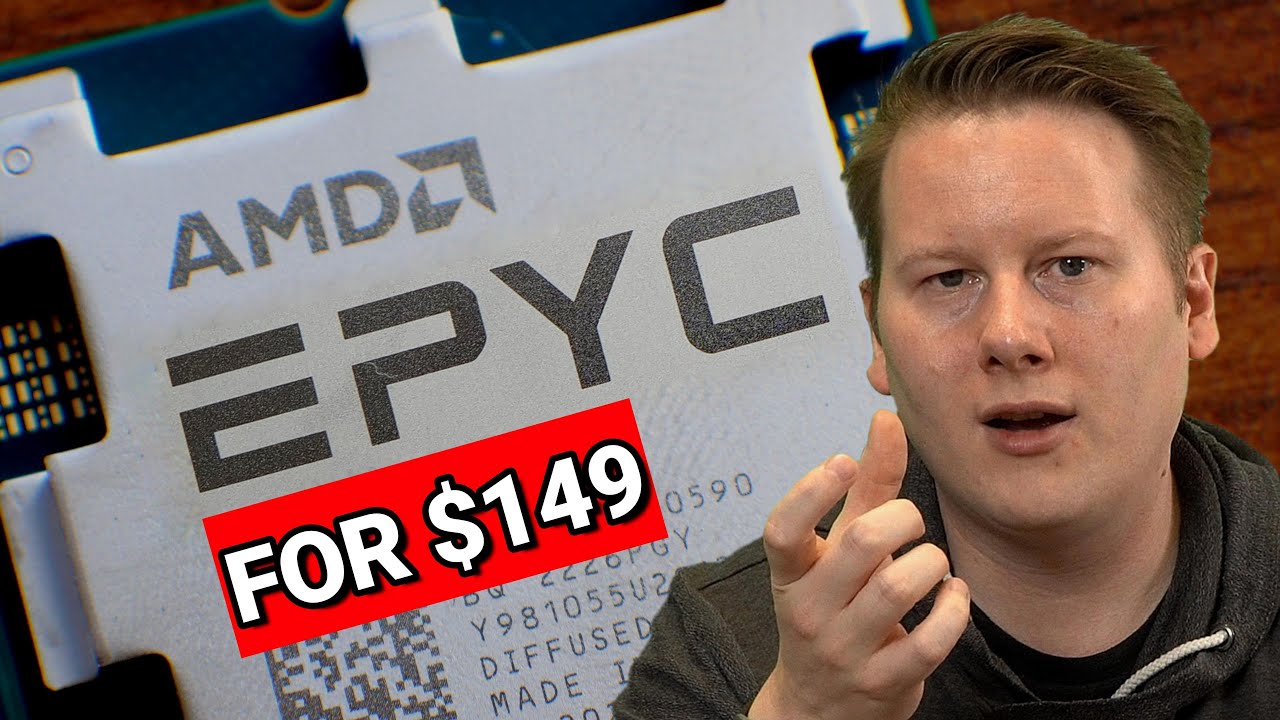Not really. It’s just a normal Zen 4 CPU with some server features like ECC memory support.
The biggest downfall of these chips is they have the same 28 PCI-E lanes as any consumer grade Zen 4 CPU. Quite the difference between that and the cheapest EPYC CPUs outside the 4000 series.
You’re going to run in to some serious I/O shortages if trying to fit a 10gbe card, an HBA card for storage, and a graphics card or two and some NVME drives.
Not really. It’s just a normal Zen 4 CPU with some server features like ECC memory support.
I’m pretty sure all the Zen CPUs have supported ECC memory, ever since the first generation of them.
A lot of the Zen based APUs don’t support ECC. The next thing is if it supports registered or unregistered modules - everything up to threadripper is unregistered (though I think some of the pro parts are registered), Epycs are registered.
That makes a huge difference in how much RAM you can add, and how much you pay for it.
Not officially. Only Ryzen Pro have official (unregistered) ECC support and not many motherboards support it either. AFAIK Threadripper doesn’t officially support it either but I could be wrong.
The newest Threadripper 7000 series not only support ECC, but require it to work. It only accepts DDR5 registered ECC RAM.
Threadripper already accomplished all of this years ago. My TR2970WX has 24 cores/48 threads, 48 PCI-E lanes, and it supports ECC and non-ECC RAM. My AsRock Rack board has BMC support as well.
The Threadripper series was the perfect workstation CPU. I’ve had mine for a few years and it can handle anything I throw at it, it can easily transcode 2-3 4K videos while doing multiple other things.
It wasn’t cheap though, it was like $650 on sale, originally like a grand or so.
Acronyms, initialisms, abbreviations, contractions, and other phrases which expand to something larger, that I’ve seen in this thread:
Fewer Letters More Letters NAS Network-Attached Storage Plex Brand of media server package SSD Solid State Drive mass storage
3 acronyms in this thread; the most compressed thread commented on today has 14 acronyms.
[Thread #757 for this sub, first seen 21st May 2024, 22:45] [FAQ] [Full list] [Contact] [Source code]
This is really nice for home servers. There has been a huge gap for years where the choice was a 16-64 core high watt monstrosity or use a 4 year old server CPU before every server went to high core counts.
8cores with ecc is perfect for my home use.
deleted by creator
Could’ve just gotten a Ryzen then. These Epycs are essentially relabeled Ryzen CPUs.
Could be but finding a motherboard that has verified ECC is tricky. Most say works but not tested/supported so you’re on your own to figure out if ECC fully works.
The server/workstation focused ASRock Rack AM5 mainboards list plenty of ECC modules in their QVL. The “gaming-focused” ASUS B650E-E I’m using even has two ECC modules listed in its QVL.
So you could’ve already gotten verified ECC support, the fact that the same CPUs now exist with a different (EPYC) branding doesn’t change that. Finding these mainboards isn’t particularly tricky either.
I’m curious, what do you or anorher “classic”(?) home user do that needs more than like an old intel 6500 with say 32GB RAM and some 1 TB SSD (hoarding etc goes to the NAS right?) of storage?
I know dockers consume, or so I have heard, but even a webserver, streaming etc is that really eating up the (pcie)bandwith?
I’m just a low end tinkerer who likes to buy over specced stuff so I wonder what’s you all doing with yours I guess!







